Meet The Women Behind Your Favourite Charities
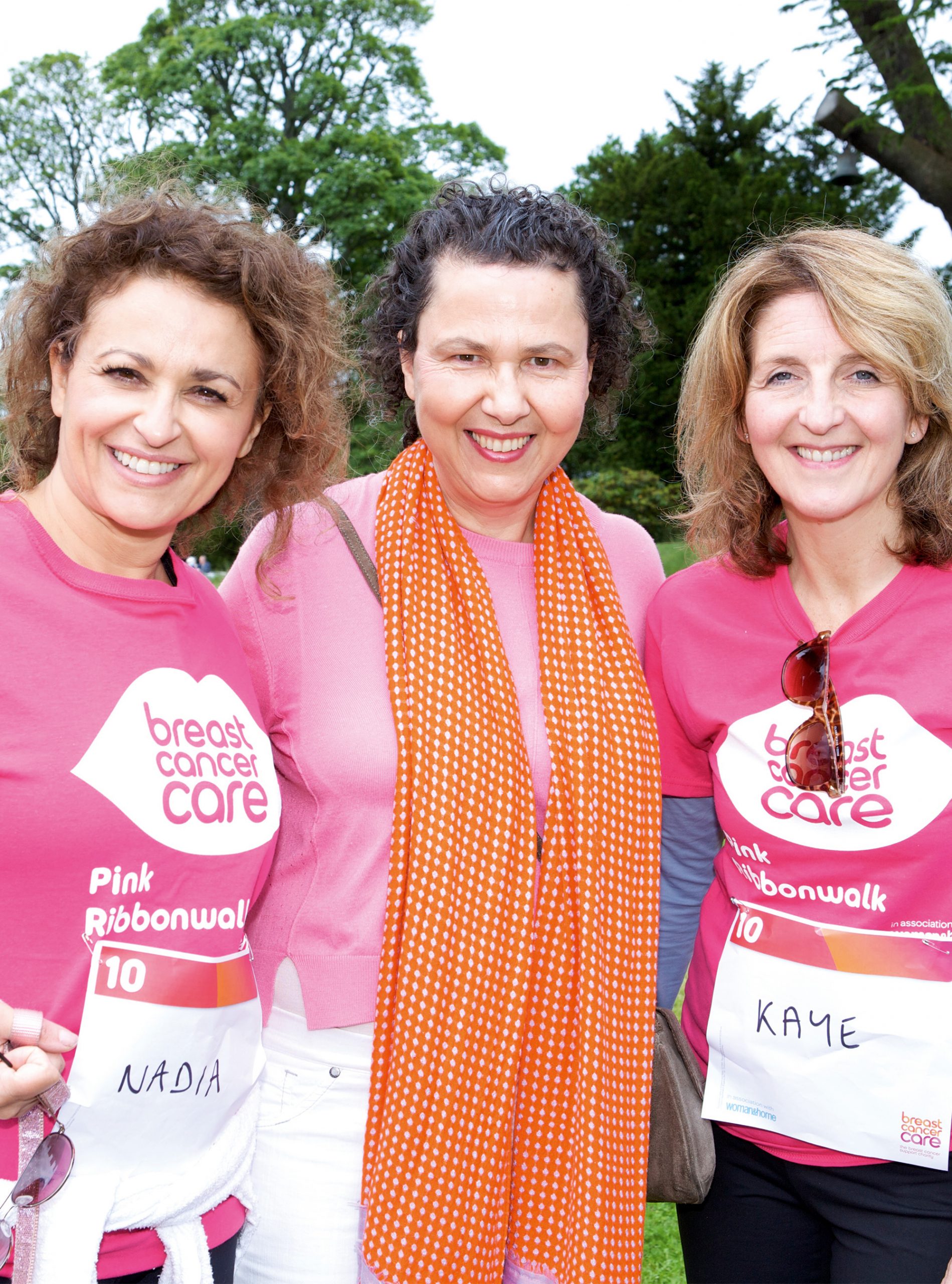
BREAST CANCER CARE
Samia al Qadhi, 51, has been the CEO for Breast Cancer Care for 22 years. She lives in London with her 15 year old daughter.
I'm not terribly ambitious but I grew up wanting to do something useful. When I graduated from my degree in history, HIV was the big issue of the day and my first job was at Lighthouse London, a centre for people with AIDS and HIV which closed in 2013. I was there for six very formative years and learned a huge amount.
Then I saw a job ad for CEO of a small breast cancer charity. I was 29 and didn't think in a million years I'd get it. When I did, I was very surprised - and extremely daunted! On my first day I was told that we had to move out of the Macmillan building. We used to get a grant from Macmillan but that was stopping. So the first thing I did was recruit a fundraiser and found us a new building. That year, we also implemented a UK breast cancer awareness month which was an idea initiated by Estee Lauder in 1994.
The charity was founded in 1973 by Betty Westgate. It was five years after her own diagnosis and it was originally known as the Mastectomy Association. Her aim was to provide emotional and practical support and accurate information for people with breast cancer. We are still the only UK wide charity to do that, via our website and written information. Our helpline is staffed by amazing breast care nurses and our forum is the most used health forum in Europe. We also have a tremendous group of volunteers who have had breast cancer who are trained to provide support.
It costs a lot to do what we do. We are funded by our ribbon walks and donations as well as corporate partnerships, and our media partnership with woman&home has been wonderful.
Our greatest achievement is that breast cancer is no longer taboo. Twenty years ago, people mumbled the word cancer and women were embarrassed about talking about their surgery. We said it's OK to talk about it and found women who were brave enough to do that. We also created opportunities for women to talk, which makes the experience of breast cancer more bearable. As a result, women get diagnosed earlier because they're more likely to go to their GP if they find a lump. Survival rates have gone up but so has the incidence of breast cancer, mainly because people are living longer.
Sign up for the woman&home newsletter
Sign up to our free daily email for the latest royal and entertainment news, interesting opinion, expert advice on styling and beauty trends, and no-nonsense guides to the health and wellness questions you want answered.
Over the years I have done this job the scale has changed massively. We now have 220 staff members and 2000 volunteers - it was 500 when I started. So although I am still doing the same job, I am less hands on now; less likely to roll up my sleeves and pack envelopes.
As a boss, I try to be very accessible, informal, and friendly. But I also try to be clear and decisive. I keep secrets in the organisation to a minimum and treat everyone like adults. My most important skill is listening rather than talking because that is where I'll learn.
Lots of my job is strategic direction of the organisation. Our challenge is that more people are surviving and the instance of breast cancer is going up so the needs are going up too. There are 570,000 people in the UK living with a diagnosis of breast cancer. Their needs are becoming more specific because, as the clinical understanding of breast cancer has increased, treatment has become more tailored.
I do have a life as well as my job. I love my reading group and seeing friends for dinner. My daughter and I love going on adventures - last year we went to Jamaica and it was wonderful. And my hobby is cooking - I love cooking Arabic food, curries and Mediterranean food. But I don't ever feel 100% off duty. I've been here for 20 years and this is really my life's work. But I love it and it is a fantastic bit of my life.
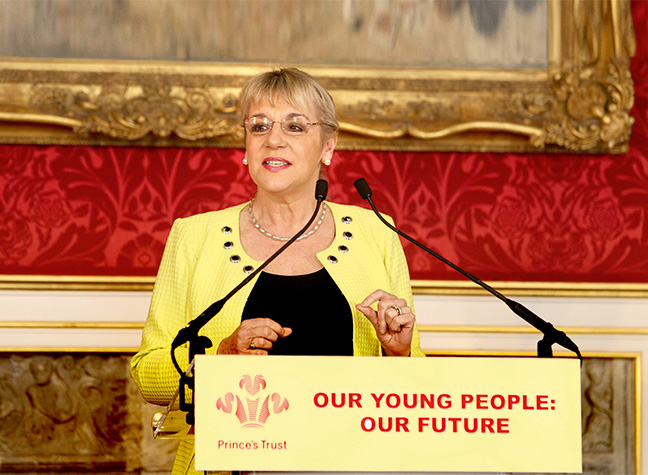
THE PRINCE'S TRUST
Martina Milburn, 59, has been the CEO of the Princes Trust since 2004. She lives in London with her husband Keith, who works for the Crown Prosecution Service, and has three sons aged 30, 27 and 20.
I first met Prince Charles at my final interview - and yes I was quite nervous. To be perfectly honest it didn't occur to me I would be given the job because I knew the competition was stiff. So I just decided to go in and enjoy it - it's not every day you have a cup of tea with the future king after all.
My role, in a nutshell is to be responsible for everything - a Jack of all trades. So one moment I'm talking to a young person, the next I'm talking to a head of state, and everything in between. Prince Charles is not hands on in the day to day running - that is my job. But he's really passionate about helping young people and spends a lot of time talking to young people. And he is very engaging so it's not like talking to his public persona - it's more like talking to your boss.
This is absolutely my dream job. I feel so strongly about giving young difficult teenagers a chance. I was a terrible teenager: I didn't do drugs but I stayed out late, broke as many rules as possible and was argumentative and difficult. Had I not had such fantastic parents and good guidelines then that streak to be wild could have taken me off the rails. The right support and help can make such a difference.
We work with young people from four groups: the long-term unemployed, people who have been in trouble with the law, people who are in difficulty at school, and people who have been in care. Work is terribly important for people's self esteem. Whatever troubles they have in life often leads to very low self esteem so what we really do is give young people confidence.
Fundraising is a big part of my job. Our funding is 30% public sector and 70% corporate trusts and high net individuals. So I spend a lot of time making connections and making sure that people feel confident in us.
My days are very varied. Yesterday I met to discuss a partnership with another charity working with young offenders. Then I was talking to a world renowned star keen to work with us. I spent time with our leadership team, had a meeting about volunteering then went to a supper with heads of state.
With 1200 employees they'd all probably say they don't see enough of me. But I meet everyone at annual staff days and we have quarterly web chats where staff can talk about anything from mileage allowance to new policies.
I never had a career plan. My great passion for writing and reading led me to become a journalist. I was always drawn to doing the more social stories so it was a natural transition to take a job running the communications department at the charity, CAFOD. My first CEO role was a few years later at Aspire (the Association of Spinal Injury Research Rehabilitation and Reintegration). Seven years later I went to Children in Need, and then the Prince's Trust.
If there is a ‘CEO type', then I am probably that. Research shows that CEOs are disproportionally eldest and only children. I am the eldest in my family so that ‘lonely at the top' feeling is something I've grown up with because I was always the first to do things.
I'm lucky to have lots of personal support. I have a fantastic husband, four sisters, some very close friends and three great sons. It's very rare to have a weekend without people popping in. I also read a lot and relax by horse-riding and cooking - I watch a lot of cooking programmes and I love having dinner parties and entertaining.
This year it is our 40th anniversary. We want it to be a celebration of everything the charity has achieved but also a springboard. By 2017 we will have helped a million and we want to help another million over the next 10 years. And we are going global, working with local organisations in the Middle East and the Commonwealth.
One of my challenges is dealing with some of the internal politics. Everyone thinks they can run the trust better than me, and any charity executive has to deal with a lot of egos. I wasn't born diplomatic so I've really had to learn to become good at stroking people and also understanding what it's like to walk in someone else's footsteps.
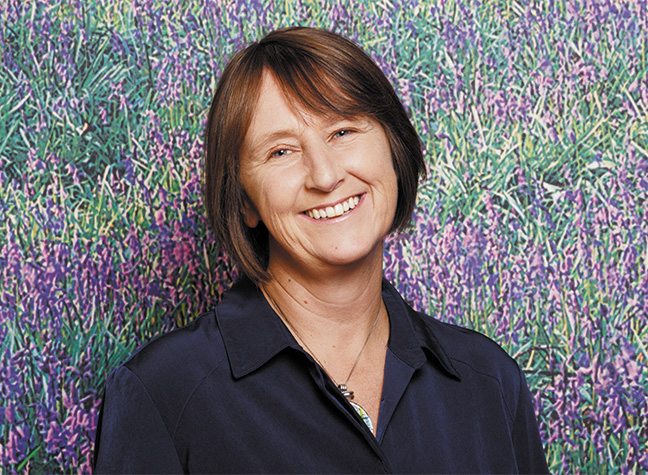
THE BIG LOTTERY FUND
Dawn Austwick, 54, has been CEO of the Big Lottery Fund since 2013. She lives in London with her husband, Henry, who runs a training company called ‘Happy'. They have three children aged 18, 21 and 23.
Big Lottery Fund awards grants to UK organisations to help improve their communities and was created in 2004, with the merger of the National Lottery Charities Board and the New Opportunities Fund. Strategy is decided by a Board and Chief Executive Dawn and her senior team manage the day to day running
I see my job as having my hand is on the tiller of a boat. Sometimes my hand has to be absolute and firm and sometimes it's invisible. But mostly all that is needed is a light touch because I want to build a team that flies. But being CEO means the buck stops with you.
We are in charge of £700million of lottery payers money which is a huge responsibility. Since June 2004, we have awarded over £9 billion to projects supporting health, education, environment and charitable purposes.
I don't make individual decisions on grants - our trained grants officers do that. We make 12,000 grants a year and get 25,000 applications. About 90% of our grants are under £10,000 then we have larger grants, which are often three to five years of funding to a charity. The largest grant we've paid is a trust called ‘Power to Change' which is £200 million to support the development of community businesses and enterprises in England.
Allocating the money is the most important thing we do but our choices have to be informed. We are trying as much as possible to reflect what is going on in society. So gathering and analysing information is very important. Listening is a really important part of my job; listening for feedback and ideas and a resonance and patterns. And learning about how other people think the organisation is doing, as well as what is happening in the world, and what other people think could be done better.
We also play a role in helping charities realise their potential. Our approach to funding is that if people are given the tools - be that money or skills or kit - then they know how best to use it in order to realise their ambitions. We want to listen to that, rather than creating a set of ambitions for them or telling them how we think they should spend the money.
The six million dollar question is: How do you know if you've made a difference? So we do a lot of asking. I am out and about a lot, travelling all over the UK and visiting many of the projects and people we are funding as well as those who want to pitch for funding. We also have lots of round table discussions with both the people and projects we are funding and our 850 staff members. Anyone can email me and we have open questions sessions called ‘Ask Dawn' which I love: if people feel they can ask me about anything the organisation will always improve.
My career has been pretty varied. I studied drama at university and my first jobs were in arts sponsorship and fundraising at a theatre. That made me want to learn about management, leadership and business so I become a management consultant at KPMG. I thought I'd stay for three years, but ended up staying for eight - because I became a yuppie and also it was really interesting.
I then oversaw the opening of Tate Modern and worked at the British Museum. My first CEO job was at the Esmée Fairbairn Foundation, a charitable, grant-making foundation. Having always been driving by social purpose, that was perfect for me; a joyous job and, eight years later, I was asked to apply for this job.
The British Lottery Fund is such an important funder and player in the charitable factor. When I came on board it had gone through the set up and development stage and needed to work out its vision moving forward so I've done a lot of work on that. But I've only been here for two and a half years so it's early days.
At the moment we are launching ‘People's projects'. A range of organisations have submitted a blog or a short film about their project and viewers in each ITV region will vote on which project they think should get funding.
It's not a 9-5 job but I believe in having a life. I love spending time with family and friends and I am a mad Arsenal supporter and, at the other end of the scale I also love Iyengar yoga, which puts you totally in the sphere of thinking only about your body which is a great de-stresser.
I don't buy lottery tickets because if I won I wouldn't accept it. And how galling would it be to have to send back a million pounds? I don't even want to go there.
-
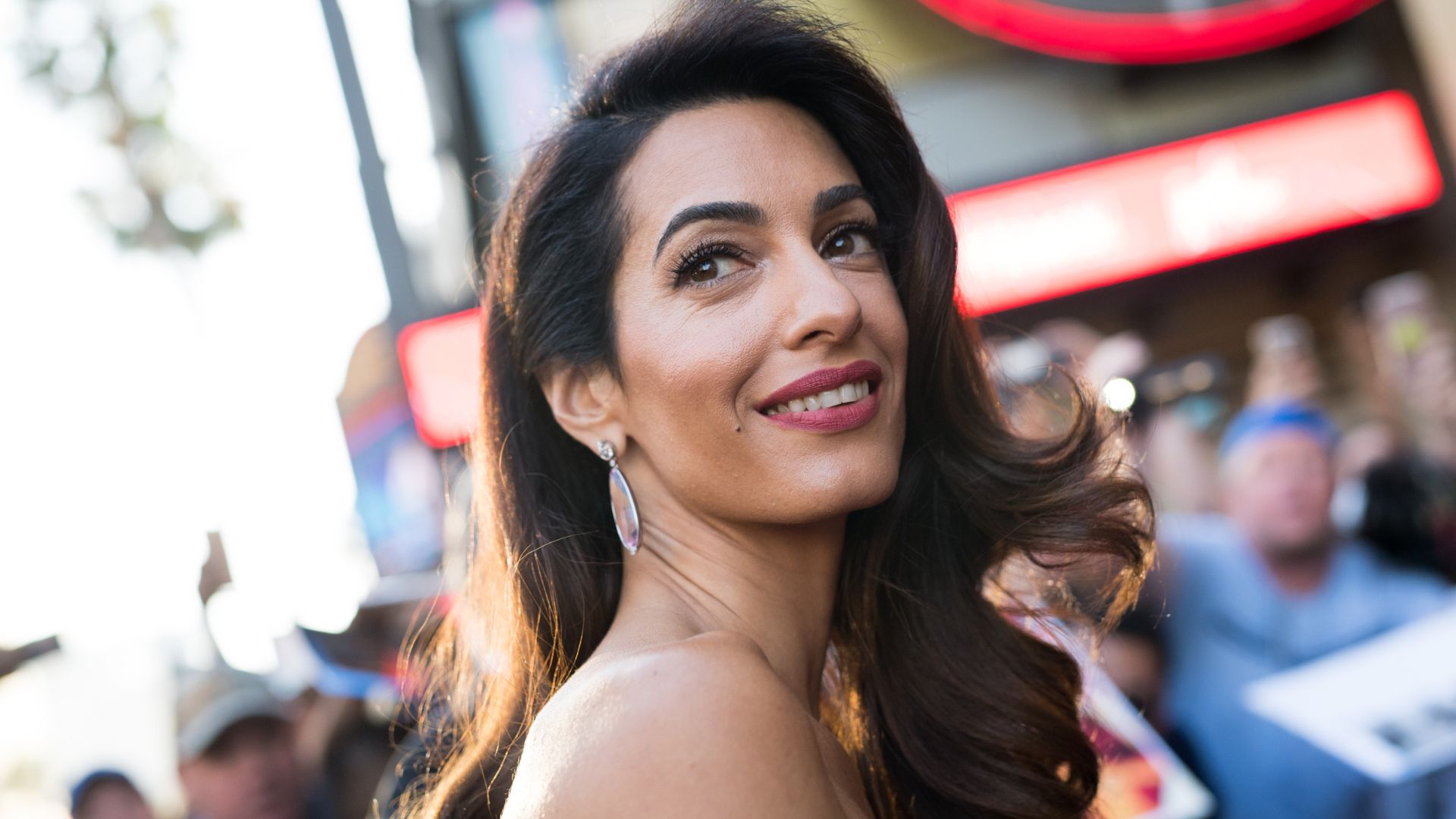 Amal Clooney rarely dresses down in denim - but her boyfriend jeans were ideal dinner date attire
Amal Clooney rarely dresses down in denim - but her boyfriend jeans were ideal dinner date attireTeamed with a cropped black blazer and sparkly top, the casual pants are easily dressed up
By Caroline Parr
-
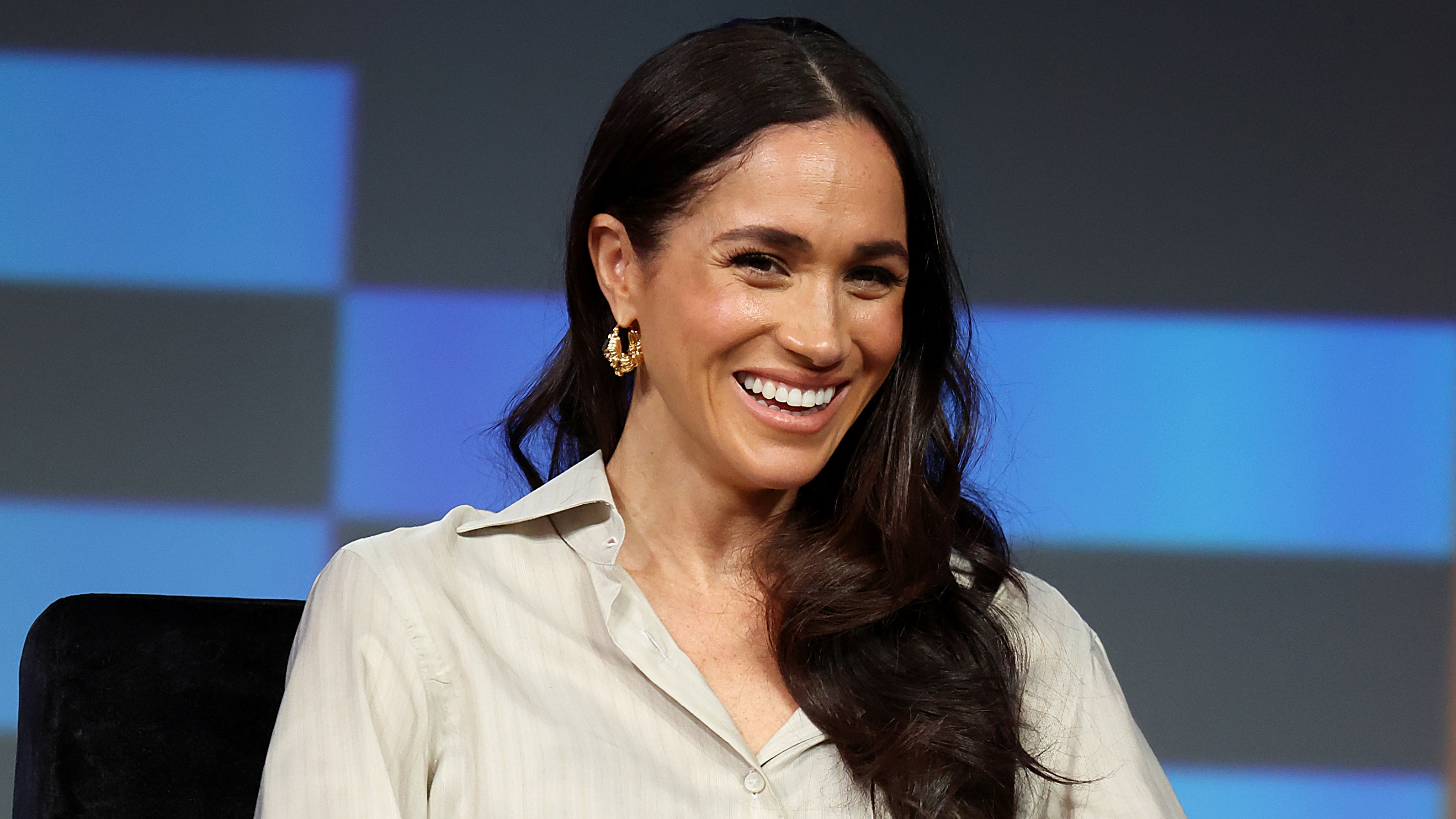 Meghan Markle shares new Princess Lilibet photo in rare glimpse of Sunday hobby with her 'little loves'
Meghan Markle shares new Princess Lilibet photo in rare glimpse of Sunday hobby with her 'little loves'She might be King Charles’s granddaughter, but Princess Lilibet is one of the least-often seen members of the Royal Family.
By Emma Shacklock